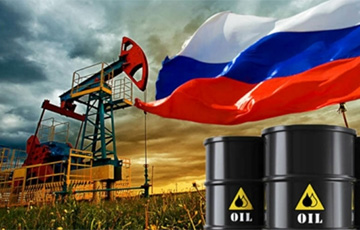Empty Gas Stations: Disaster Comes To Russia From Unexpected Side
21- 8.09.2023, 16:22
- 33,244

Why is there an oil crisis in the Russian Federation, and what consequences will it have for the aggressor country?
Disaster came to the Russian Federation from where no one expected it. In the southern regions of the country, during the harvest season, there is a fuel shortage. As experts told Focus, this is the result of both sanctions and ill-conceived economic policies within the country. As a result, Russia may turn from an exporter into an importer of oil.
Russia, one of the world's largest oil suppliers, has faced fuel shortages during its harvest campaign. The crisis is felt most acutely in the southern regions of the country. “In the Krasnodar region, Adygea and Astrakhan, A-92 gasoline is not sold at retail, and there is almost no A-95 gasoline or diesel,” a trader in southern Russia told Reuters. As Russian media write, fuel shortages were recorded at gas stations in the Astrakhan, Saratov, Samara, Ryazan, Rostov, Novosibirsk and Volgograd regions, Kalmykia, Khabarovsk Territory and in the Russian-occupied Crimea.
At the same time, the price of AI-95 gasoline on the St. Petersburg International Commodity and Raw Materials Exchange is breaking a historical record — exceeding 74 thousand rubles per ton. On the last day of summer, 95-grade gasoline rose in price by 0.82%, to 74,304 rubles per ton. At the same time, the cost of AI-92 gasoline increased by 0.59%, to 63,946 rubles per ton.
Sanctions and regulation: why gasoline prices are rising in the Russian Federation
The fuel shortage is a direct consequence of ill-conceived tax policy in the Russian Federation, says energy expert Gennady Ryabtsev.
“The reform called the “tax maneuver”, which has been implemented over the past decade, with constant adjustments being made, does not contribute to the uniform saturation of the Russian domestic market with petroleum products. We constantly observe the failures of this policy in the central regions, because it is no secret that in the Moscow region from time to time there is a shortage of fuel, the same as in the south of Russia, in national regions closer to the Caucasus,” he explained.
First of all, the situation with fuel in the Russian Federation was affected by the expected reduction in damper payments to oil workers and an increase in excise taxes on gasoline and diesel fuel. The corresponding bill will come into force in September, at which time compensation to oil refiners will be halved, by 30 billion rubles per month. At the same time, the fall in the value of the Russian ruble makes the export of petroleum products more profitable than their sale on the domestic market. Therefore, oil companies are trying to increase foreign supplies, which also creates a deficit in the domestic market.
According to Ryabtsev, the situation that has developed in the Russian Federation is quite natural in conditions of excessive regulation of the market, where there are vertically integrated oil companies, “which do not suffer any losses from such a situation, because their main direction is export.”
The fuel shortage in the Russian Federation is, in particular, associated with tax policy, the shutdown of refineries for repairs and problems on the railway.
In addition, the shortage in Russia is aggravated by the shutdown of oil refineries for repairs, as well as a twofold increase in the time it takes to transport fuel by rail compared to last year. Market participants explain the latter by the overload of railways due to the need to reorient coal exports from western directions to the east, and the restructuring of supply chains due to anti-Russian sanctions.
European sanctions have made Russia unable to provide fuel to its citizens.
“Russian oil refineries do not have oil that they can process with their own facilities. All reservoirs are filled with “heavy” oil, which no one needs, because it used to be consumed by Europe. Europe bought a “lighter” Arabic or American one, mixed it with Russian Urals and received a product for processing,” explains Dmitry Leushkin, director of the PRIME group of companies.
From a global exporter to an importer: what will happen next with fuel in the Russian Federation
Russian companies are trying to export the oil that Russia can neither sell legally nor process by “gray” tankers anywhere in order to free up reservoirs. They want to fill them with “lighter” oil and process it, says Leushkin.
“With a tanker fleet that operates without beacons, trackers, that are not tracked, in a semi-pirate way, they are trying to unload from Murmansk, sell oil for pennies, just to take it out. Even to Brazil. For some period of time, Russia will experience these great difficulties. Because new reservoirs will not be built and promptly emptied. The crisis will intensify in the next six months. Russia is facing a general collapse,” Dmitry Leushkin is convinced.
Prices on the domestic market in the Russian Federation will continue to rise. It is possible that Russian oil refineries will begin to import the “black gold”.
“The only thing they can do is start importing fuels and lubricants from Iran. It can even get to such a ridiculous disgrace! They will try to create a mixture for processing at their factories, for example, with Azerbaijani oil, which is lighter, or Kazakh one,” summed up the director of the PRIME group of companies.
Russia may start importing oil from Iran to create a recyclable mixture
Meanwhile, representatives of the Russian Ministry of Energy, at a meeting with farmers under the patronage of the Ministry of Agriculture, stated that the fuel crisis will be resolved within two weeks.










